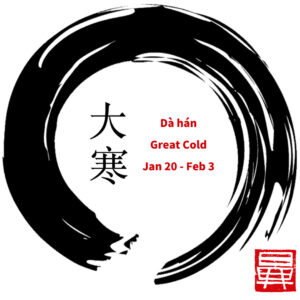
The Path to Happiness in Chinese Medicine
It is your birthright to feel good and be happy. In Traditional Chinese Medicine, happiness is considered an important aspect of overall health and believes that emotional health is essential for physical health.
With the prevalence of mental health concerns becoming more prominent than ever before, and often shrouded in silence, stigma and shame, I wanted to share with you some concepts and tools that could be used to shift not just how you feel from day to day, but also how increase your overall health and wellbeing.
The other thing I want to address is that cardiovascular disease is the #1 killer in the United States and also worldwide and there have been several studies that suggest a correlation between cardiovascular disease and lower levels of happiness.
Because of this, I created a course where you will have a deeper understanding of Chinese Medicine, have an increased ability to manage difficult emotions, have greater self-awareness and improved stress management skills.
Most of us don’t realize that we can feel better.
Introduction
As a Doctor of Chinese Medicine, I am honored to share the ancient wisdom and profound insights of Traditional Chinese Medicine (TCM) on the concept of happiness. In contrast to the Western approach, which often seeks happiness as a fleeting emotional state, Chinese Medicine perceives happiness as an inherent aspect of overall well-being and inner harmony. In this blog post, we will explore how Chinese Medicine views happiness and the practices it advocates to attain a fulfilling and balanced life.
The Concept of Happiness in Chinese Medicine
In Chinese Medicine, happiness is not merely a momentary feeling but rather a state of equilibrium and alignment within the body, mind, and spirit. At the core of this philosophy lies the concept of “Qi” (pronounced “chee”), which can be described as the vital life force that flows through all living beings. The balance and unobstructed flow of Qi are crucial for physical, emotional, and mental well-being, and thus, happiness.
Understanding the Interplay of Yin and Yang
To understand happiness in Chinese Medicine, we must also delve into the concept of Yin and Yang. These complementary forces represent the dualistic nature of existence. Yin embodies qualities such as rest, introspection, and receptivity, while Yang represents activity, energy, and outward expression.
Happiness is believed to arise when Yin and Yang are in harmony within ourselves and with the external environment. Like a dance of cosmic energies, maintaining balance between these opposing forces is essential for achieving contentment and happiness in life.
The Role of Emotions
Emotions play a pivotal role in the pursuit of happiness according to Chinese Medicine. However, emotions are not seen as isolated states, but rather as interconnected energies that can affect the flow of Qi. When emotions are expressed and processed healthily, they contribute to the balance of Qi and overall well-being. Conversely, the suppression or excessive indulgence of emotions can lead to disharmony and emotional stagnation.
Five Elements and the Organ-Meridian System
The Five Elements theory in Chinese Medicine provides another perspective on happiness. It categorizes the various phenomena of the natural world and human experience into five elements – Wood, Fire, Earth, Metal, and Water. Each element is associated with specific organs, emotions, and characteristics.
For example, the Wood element corresponds to the Liver and Gallbladder organs and is connected to personal growth, determination, and anger. The Fire element relates to the Heart and Small Intestine, representing joy, love, and vitality. Understanding the interplay of these elements can help diagnose imbalances and guide treatment strategies to restore harmony and happiness.
Holistic Approach to Happiness
Chinese Medicine takes a holistic approach to happiness, recognizing that the mind, body, and spirit are interwoven and influence one another. Achieving happiness involves nurturing all aspects of ourselves:
Dietary Harmony: Proper nutrition, as per the principles of Chinese dietary therapy, can help maintain Qi balance and support overall well-being.
Herbal Medicine: Traditional Chinese herbs are often used to address imbalances and promote harmonious Qi flow.
Acupuncture: This ancient practice involves inserting thin needles into specific points to restore the flow of Qi and alleviate emotional and physical ailments.
Meditation and Mindfulness: Cultivating inner peace and mindfulness can help process emotions, reduce stress, and promote emotional balance.
Movement Practices: Tai Chi and Qigong are gentle exercises that promote the flow of Qi and enhance physical and emotional balance.
Conclusion
In conclusion, Chinese Medicine views happiness as an ongoing journey towards inner harmony and balance. By recognizing the interplay of Qi, Yin and Yang, the Five Elements, and the role of emotions, we can understand the profound wisdom that this ancient healing system offers on the pursuit of happiness.
Embracing the holistic approach of Chinese Medicine and nurturing our physical, emotional, and spiritual well-being can pave the way to a more fulfilling and joyful life. May we all find our path to happiness through the nurturing of Qi and the cultivation of harmony within ourselves and the world around us.
Please check out my course and empower yourself by learning these time-tested tools.